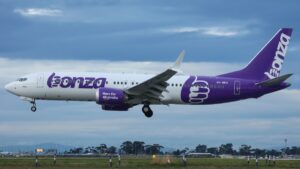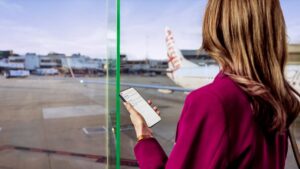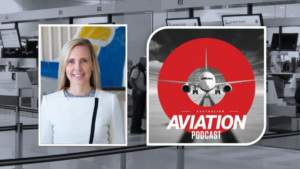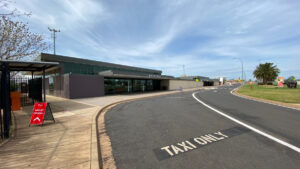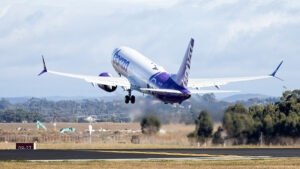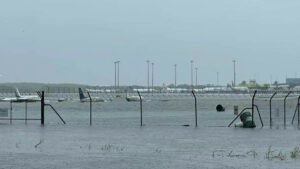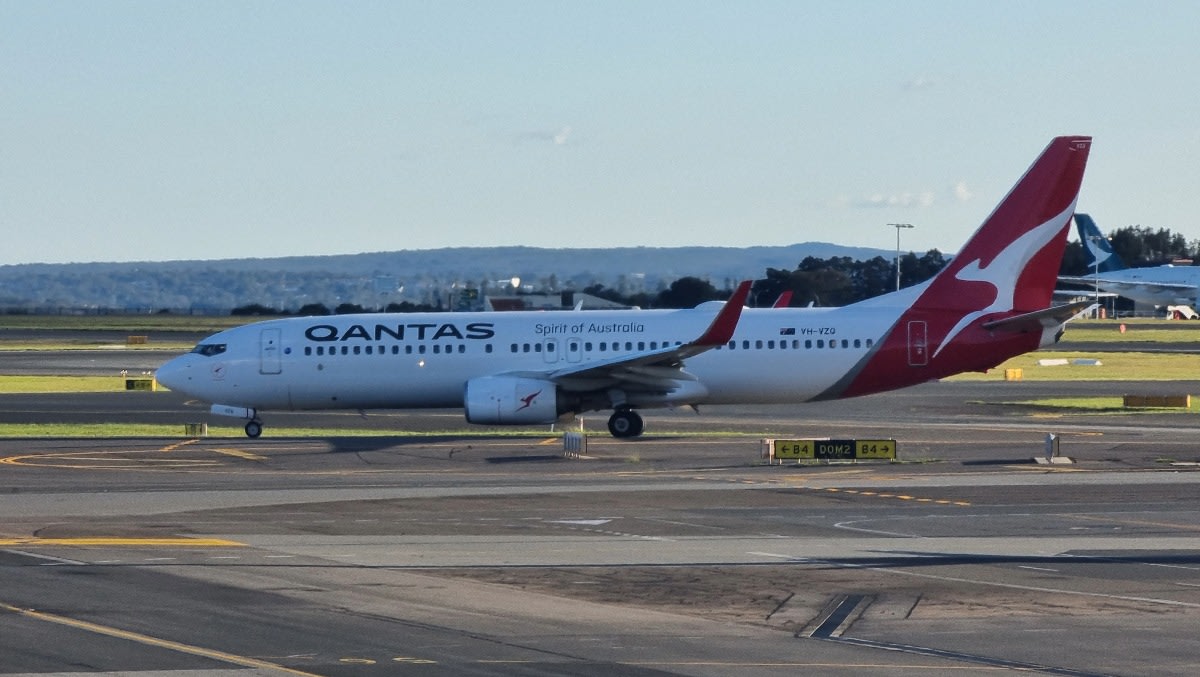
Qantas has argued the ACCC has ignored the “fundamental reality” of flight schedules in its ‘ghost flights’ legal action against the airline.
In its first detailed response to the allegations, the Flying Kangaroo said it was “impossible” for any airline to guarantee a service will operate at its scheduled time and that it instead aims to get customers to their destinations as quickly as possible.
It comes two months after the ACCC first revealed it was taking Qantas to the Federal Court, alleging the airline was continuing to sell tickets to flights it had already cancelled.
In a statement to the Federal Court, Qantas said all impacted domestic passengers identified by the ACCC were offered same-day flights prior to or within one hour of the scheduled time, and 98 per cent of international passengers impacted were offered flights within a day of their scheduled departure date.
“In purely legal terms, the ACCC’s case ignores a fundamental reality and a key condition that applies when airlines sell a ticket,” Qantas argued.
“While all airlines work hard to operate flights at their scheduled times, no airline can guarantee that.
“That’s because the nature of travel – when weather and operational issues mean delays and cancellations are inevitable and unavoidable – makes such a guarantee impossible,” the statement read.
“For this reason, our promise is to get customers on their way to their destination as close as possible to the flight time they book, either on their original or an alternative service at no additional cost. If not, we offer a full refund. This is consistent with our obligations under consumer law and is what we did during the period the ACCC examined.”
Qantas said the flights were being cancelled “well ahead of travel”, and it had wanted to offer alternatives as quickly as possible rather than simply pushing through the cancellations in the system first.
“While managing this is not a problem in ‘normal times’, the sheer scale of the changes we were dealing with during this period meant that some flights remained on sale, as the ACCC case flags, for 48 hours or more after they were cancelled,” the airline said.
“Some of the longer delays were due to human error and process failures. We place no blame on our people for these processing errors given the incredible difficulties they were operating under.
“This was not done for commercial advantage. All customers who booked a flight that was cancelled were offered an alternative flight as close as possible to their nominated time for no extra cost, or a full refund.”
The decision to go ahead with court action came from an analysis of data showing Qantas cancelled almost a quarter of flights between May and July 2022, or 15,000 of 66,000 scheduled domestic flights departing from all states and mainland territories
The watchdog said that for 70 per cent of these cancelled flights, Qantas “continued to sell tickets for the flight on its website for two days or more, or delayed informing existing ticketholders that their flight was cancelled for two days or more, or both”.
A day after the ACCC’s announcement of legal action, chair Gina Cass-Gottlieb suggested Qantas should be fined more than $250 million if found guilty.
- SEO Powered Content & PR Distribution. Get Amplified Today.
- PlatoData.Network Vertical Generative Ai. Empower Yourself. Access Here.
- PlatoAiStream. Web3 Intelligence. Knowledge Amplified. Access Here.
- PlatoESG. Carbon, CleanTech, Energy, Environment, Solar, Waste Management. Access Here.
- PlatoHealth. Biotech and Clinical Trials Intelligence. Access Here.
- Source: https://australianaviation.com.au/2023/10/accc-case-ignores-reality-of-flying-says-qantas/
- :has
- :is
- :not
- 000
- 15%
- 2022
- 66
- 70
- 98
- a
- Action
- Additional
- ADvantage
- After
- against
- ahead
- aims
- airline
- Airlines
- All
- Allegations
- almost
- already
- alternative
- alternatives
- an
- analysis
- and
- Announcement
- any
- applies
- ARE
- argued
- AS
- At
- because
- being
- between
- book
- by
- came
- CAN
- case
- cent
- Chair
- Changes
- Close
- COM
- comes
- commercial
- condition
- consistent
- consumer
- continuing
- Cost
- Court
- Customers
- data
- Date
- day
- Days
- dealing
- decision
- Delayed
- delays
- destination
- destinations
- detailed
- DID
- difficulties
- Domestic
- done
- due
- during
- either
- error
- Errors
- existing
- extra
- Federal
- First
- flags
- flight
- Flights
- flying
- For
- found
- from
- full
- fundamental
- get
- given
- Go
- guarantee
- guilty
- had
- Hard
- hour
- HOURS
- HTTPS
- human
- if
- impacted
- impossible
- in
- incredible
- inevitable
- instead
- International
- issues
- IT
- ITS
- jpg
- July
- Key
- Law
- Legal
- Legal Action
- longer
- mainland
- MAKES
- managing
- May..
- mean
- meant
- months
- more
- Nature
- no
- obligations
- of
- offer
- offered
- on
- ONE
- operate
- operating
- operational
- or
- original
- our
- People
- per
- period
- Place
- plato
- Plato Data Intelligence
- PlatoData
- possible
- Prior
- Problem
- process
- processing
- promise
- purely
- Pushing
- Quarter
- quickly
- rather
- Read
- Reality
- reason
- refund
- remained
- response
- Revealed
- Said
- sale
- says
- Scale
- scheduled
- sell
- service
- should
- showing
- simply
- some
- Statement
- States
- such
- system
- taking
- terms
- territories
- than
- that
- The
- their
- These
- they
- this
- Through
- ticket
- tickets
- time
- times
- to
- travel
- two
- unavoidable
- under
- wanted
- was
- watchdog
- Way..
- we
- Weather
- Website
- were
- What
- when
- WHO
- will
- with
- within
- Work
- zephyrnet

